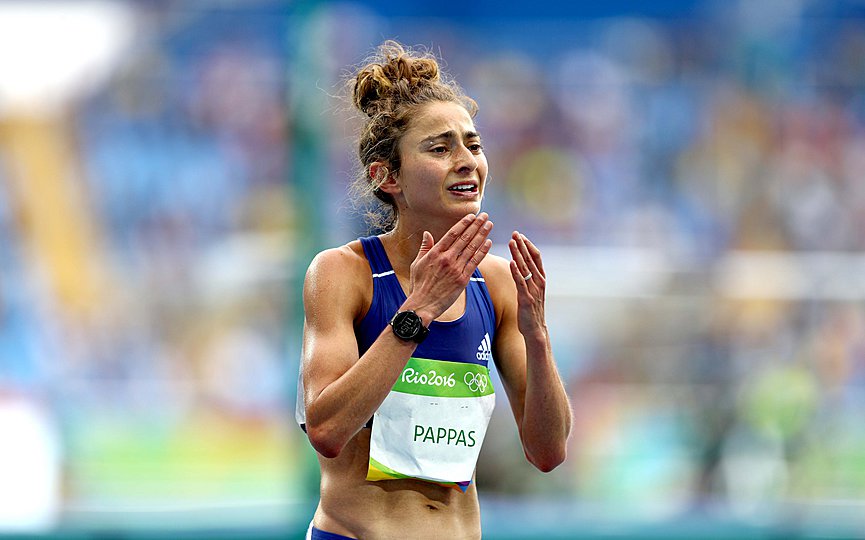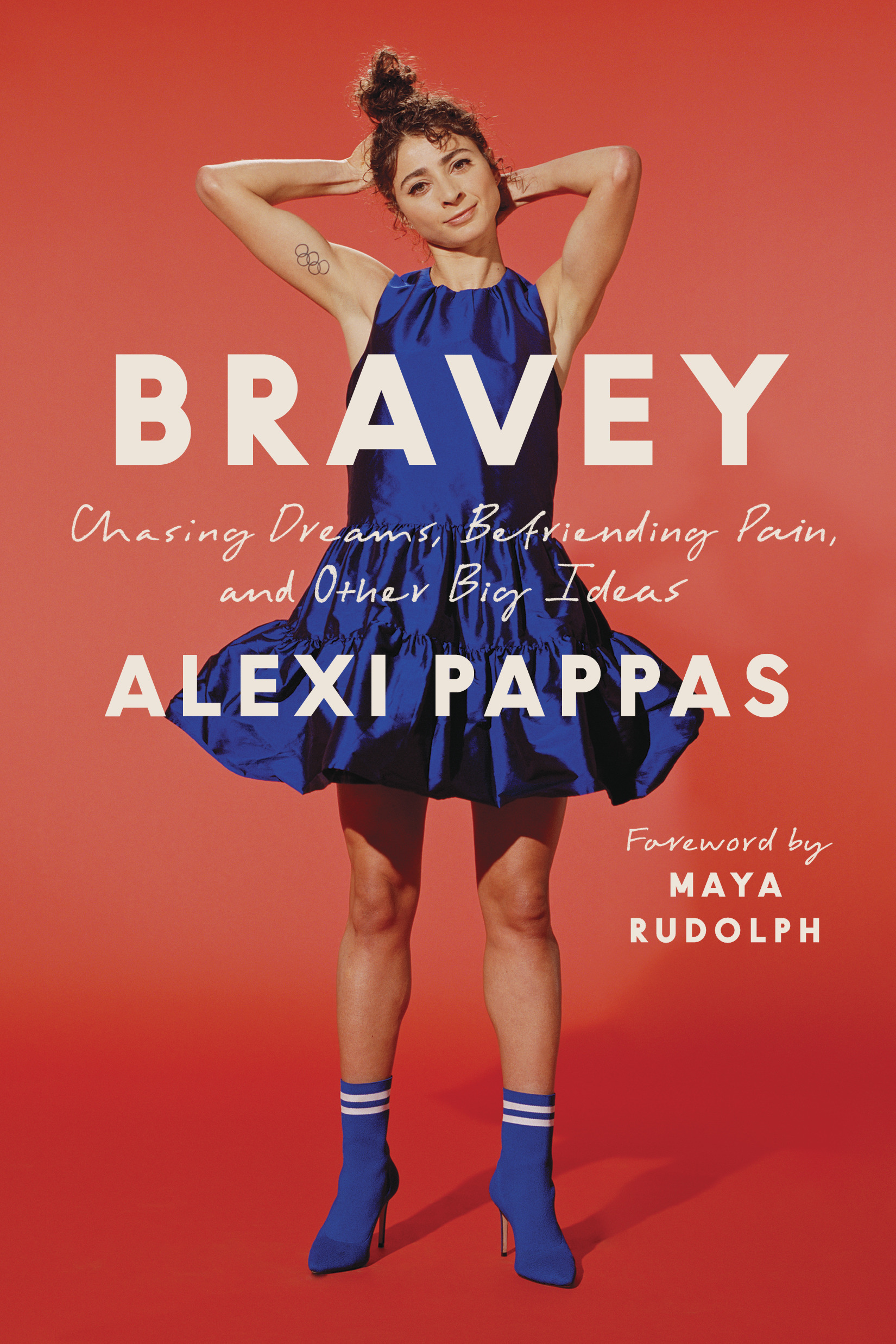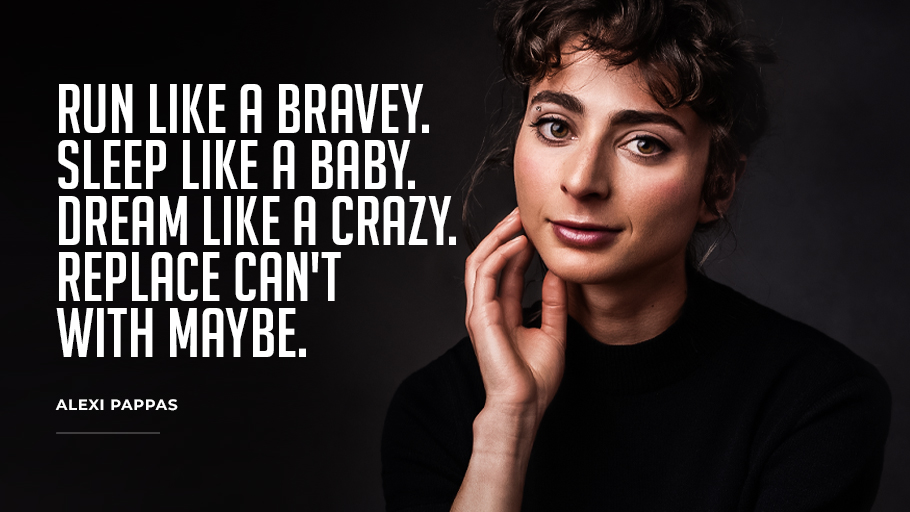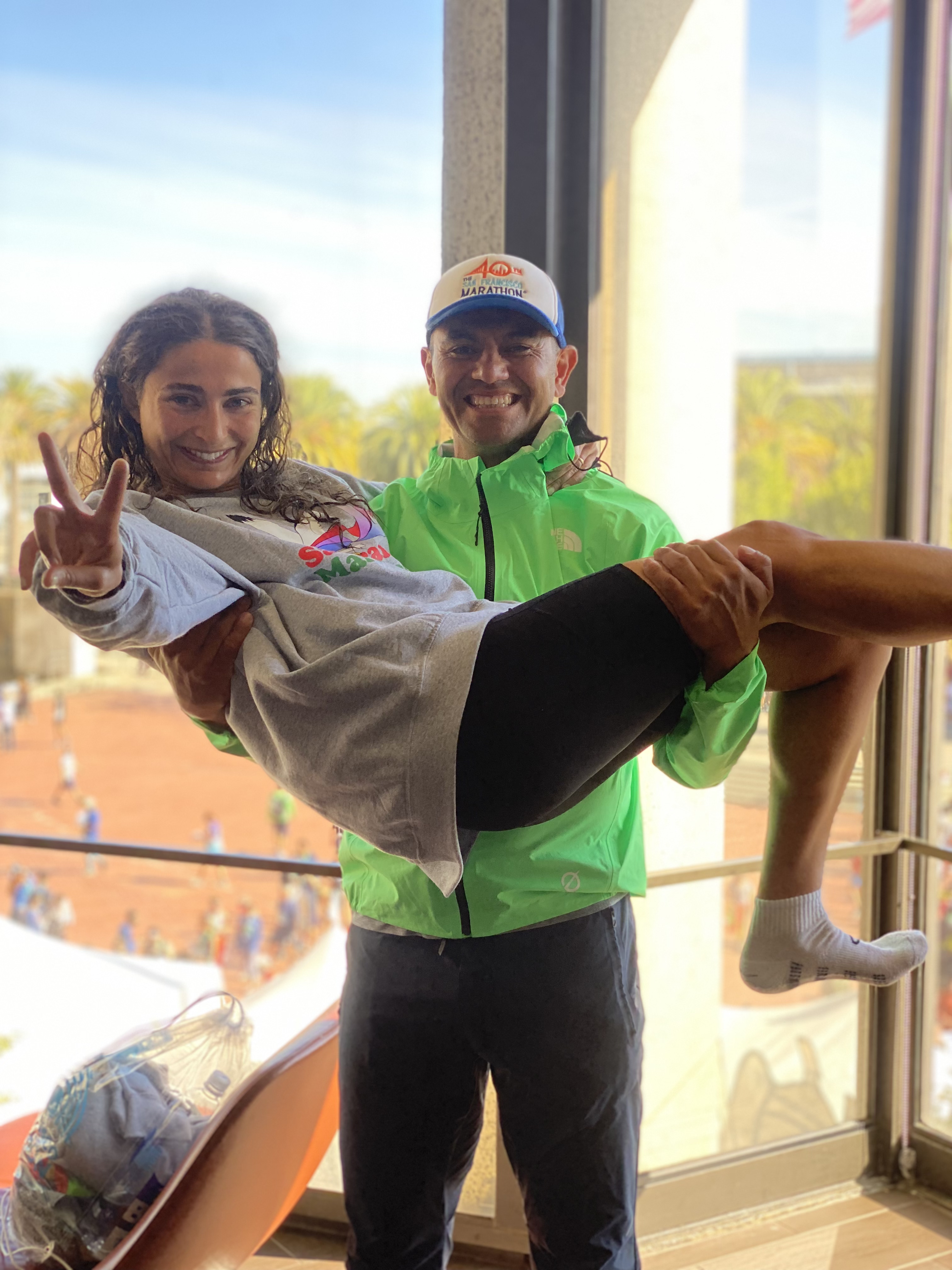“I started to learn what it really means to listen to your body and listen to your heart.” Training Intuitively: An Exclusive Post-Race Interview with Alexi Pappas
“First, could you introduce yourself?”
“Alexi Pappas, Olympian, writer, filmmaker.”
This short, to-the-point introduction belongs to none other than 2016 Olympic athlete Alexi Pappas. Besides knowing how to run really far, really fast, Pappas also published a book called Bravey and has worked on multiple films.
Pappas ran the 2021 San Francisco Marathon and even though it was originally just a training run for her, it played an important role in her racing season.
 ”I had some challenges after Rio with physical and mental health and this was the first marathon feeling fully healthy,” Pappas said.
”I had some challenges after Rio with physical and mental health and this was the first marathon feeling fully healthy,” Pappas said.
Edited to add: After this interview, Pappas spoke about these struggles in depth with the New York Times.
While Pappas ran the race, Jorge Maravilla grabbed a camera instead of a pair of running shoes. He’d won the San Francisco Marathon twice already; this time, he decided to capture every moment as his car followed the race leaders. Later the same day, he interviewed Pappas for the San Francisco Marathon.
JM: First of all, congratulations on your finish today. What is it like to run a full marathon in training for, ultimately, the goal of running the New York City marathon?
AP: I’ve actually never done a training run this long for a marathon before. I’ve never run 26.2 before racing 26.2.
What’s different? What led Pappas to run an entire marathon as a training run if her goal wasn’t an ultra—one of those distances that may justify a marathon training run? It was intuition.
For the first time in my life, I’m training more intuitively and trying to really listen. This is going to sound so wholesome but I really listen to my heart about what I need. I think what I learned is that before, I really needed coaching, I really needed that guidance. Then I started to learn what it really means to listen to your body and listen to your heart.
Pappas decided to listen to her heart even when races got canceled and changed the plans of her team to come to the San Francisco Marathon.
I was originally going to come out here with team Garmin and then, because of COVID, some of the events shifted. But I still had this itch to run the race. My training partner Adam who’s doing all these trails in LA got me really excited about coming out here and potentially doing the marathon—and I just felt excited. It felt right to me, partly because I’d have the company of friends, partly because I grew up here. My dad has lived here and worked here his whole life. I grew up going to Giants games and spending time in Golden Gate Park, so I knew that if I was going to do something like this, this was the race to do it at. And it exceeded my expectations.
JM: That’s very courageous of you and also, obviously, a display of really good emotional intelligence, which I think isn’t something that everyone possesses as an athlete. I think one of the things about your choice to move is also something very brave. On that note, I’d love you to tell us a little bit more about your book.
 AP: The book, Bravey, came out in January 2021. It’s a memoir and an essay collection with a foreword by Maya Rudolph. I started it at the 2016 Olympics and it was about growing up but I think the big picture is how I crafted my life. I’m hoping that the little things that, sometimes, I learned the hard way would help other people. I think it has resonated, and that, I’m very grateful for.
AP: The book, Bravey, came out in January 2021. It’s a memoir and an essay collection with a foreword by Maya Rudolph. I started it at the 2016 Olympics and it was about growing up but I think the big picture is how I crafted my life. I’m hoping that the little things that, sometimes, I learned the hard way would help other people. I think it has resonated, and that, I’m very grateful for.
JM: That’s a really good segue into my next question. From being a world-class Olympic athlete to honing and owning the elements of your existence, you’ve learned a lot. You allow yourself to evolve and listen to your body and your mind, which is something that I think all athletes struggle with in some shape or form. With that experience, what would be the words of advice that you can give to the next generation of athletes?
AP: I think it’s some combination of ‘your feelings are real, meaning, if you feel pain, it’s real,’ and ‘pain can be a sensation, not a threat.’ It’s important to learn that when it’s good pain, you know it’s just a sensation and move on, and when it’s bad pain, you recognize that and take care of yourself. That’s a pillar of mine, recognizing what kind of pain I’m experiencing, and that it’s a part of the sport.
Pappas had more advice to give. Recognizing good and bad pain isn’t the only important thing that can help one finish a marathon—or any race—successfully; mindset plays a big role, too.
With the marathon, in particular, try to see everything in your favor. If it’s cloudy, if it’s dark at the beginning of the race, somehow seeing it as a good thing is key. If you happen to have a rough patch and you slow down, take the time to look outward and use the environment as a fuel source energetically.
Simply try to see the world as an abundant place as best as you can. You always have the choice to see things as opportunities and abundance or the opposite. See the world like an athlete; you wanna be a winner, right? At the race, at every turn, we had a couple of bathroom stops today. And I thought, ‘ maybe it’s for the best; I need to be able to do a hard workout on Tuesday. So bathroom stops are probably in my favor.
It’s said that the third time’s the charm. It seems so because Pappas had a third, final piece of advice for everyone. Running often imitates life; advice for running a marathon can be applied broadly.
 Here’s one very specific piece of advice. I think that the thing I learned the most was that actions change first, thoughts and feelings second. So when you feel difficult feelings in the middle of a marathon, try to focus on, again, your actions. Take a few quick steps, shake your arms out, get some water, find a bird overhead and distract yourself, wondering where it’s flying.
Here’s one very specific piece of advice. I think that the thing I learned the most was that actions change first, thoughts and feelings second. So when you feel difficult feelings in the middle of a marathon, try to focus on, again, your actions. Take a few quick steps, shake your arms out, get some water, find a bird overhead and distract yourself, wondering where it’s flying.
JM: Thank you for that, that’s very insightful and I appreciate it. I think Adam is a very powerful influence, I think we’re gonna see you run an ultramarathon soon.
Pappas neither confirmed nor denied that claim. However, she did speak of the beauty of running in the Bay and on trails.
”When we were taking in the smells of the eucalyptus, it was like being in an aroma bath,” she said.
Editor’s note: parts of the interview were rephrased or shortened for clarity.



